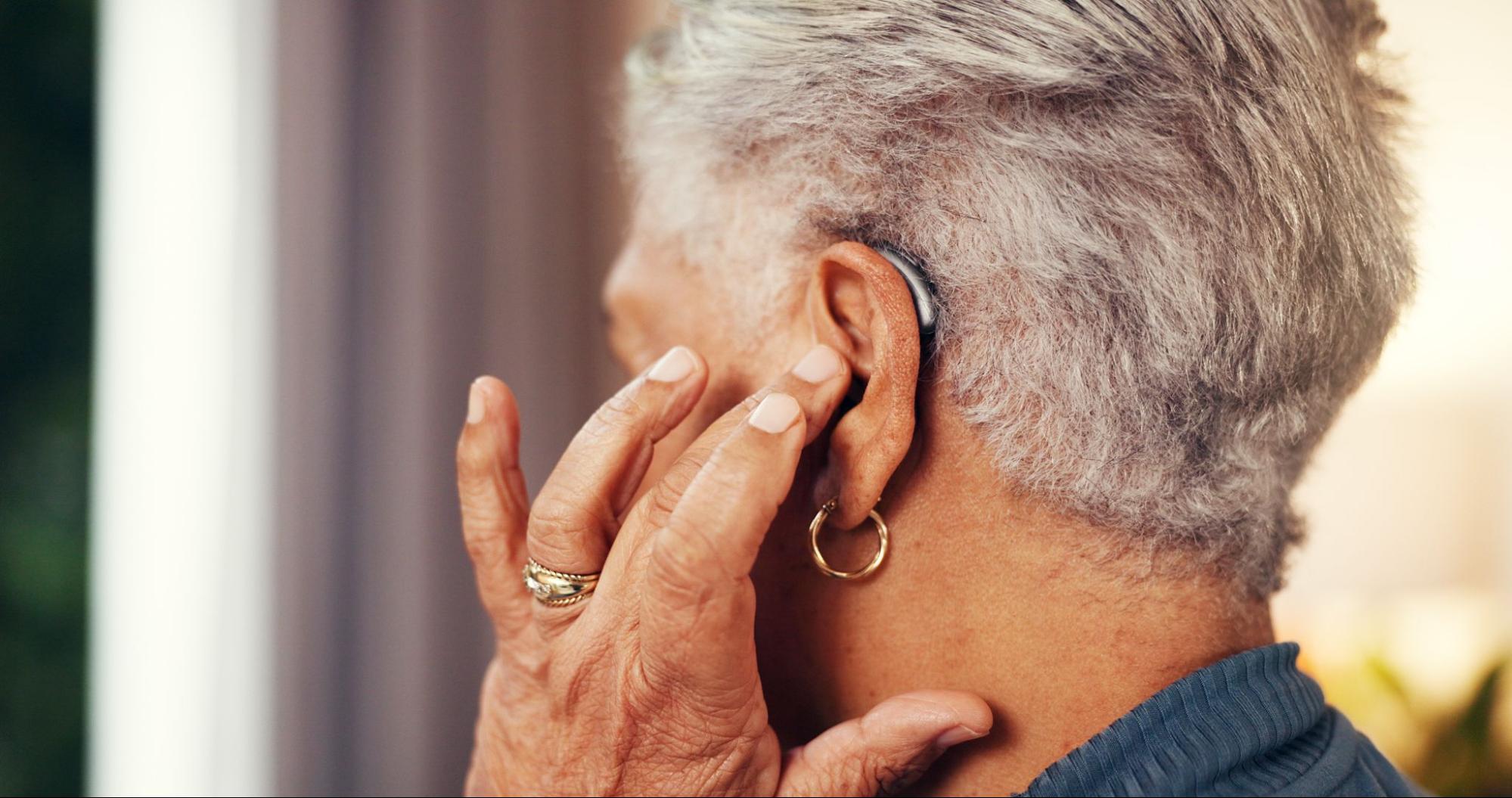The unseen impact of untreated hearing loss: Why early intervention matters
.jpeg)
Hearing loss is more than just an inconvenience; it's a significant public health issue with far-reaching consequences. When left untreated, hearing loss can lead to a cascade of adverse health outcomes, affecting not only individuals but also communities at large. Recognizing the importance of early intervention is crucial in mitigating these effects and enhancing quality of life.
The prevalence of hearing loss
In the United States, nearly one in four adults has audiometric results suggesting noise-induced hearing loss. Globally, hearing loss affects about 10% of the population to some degree. Despite these significant numbers, hearing loss often remains underdiagnosed and undertreated, leading to various health complications.
The domino effect of untreated hearing loss
Untreated hearing loss doesn't exist in isolation; it intertwines with several other health issues, amplifying their severity:
- Cognitive decline and Dementia
Research indicates a strong association between hearing loss and cognitive decline, including dementia. The risk increases with the severity of hearing loss. Several hypotheses suggest that cognitive resources are diverted to hearing, or that social isolation resulting from hearing loss negatively impacts cognitive functions. - Mental health challenges
The social isolation and communication difficulties stemming from hearing loss can lead to depression and anxiety. Individuals often withdraw from social interactions, leading to loneliness and reduced mental well-being. - Increased risk of falls
Hearing loss is linked to a higher risk of falls, especially in older adults. The severity of hearing loss correlates with difficulties in postural control and a higher prevalence of falls. The exact causal link is yet to be fully understood, but it is believed that physiological, cognitive, and behavioral factors play a role. - Cardiovascular strain
Chronic exposure to noise and untreated hearing loss have been associated with hypertension and other cardiovascular issues. The body's stress response to persistent noise can lead to adverse cardiovascular effects over time. - Diabetes complications
Type 2 diabetes mellitus (T2DM) is associated with various complications, including hearing loss. Similar pathophysiological mechanisms may lead to damage in the neural system or vasculature of the inner ear, resulting in hearing impairment.
Economic and social implications
Beyond health, untreated hearing loss imposes significant economic and social burdens on individuals and society as a whole.
Financial costs to individuals and healthcare systems
- Individuals with untreated hearing loss often experience reduced earning potential due to difficulties in workplace communication and performance. Studies suggest that those with untreated hearing loss can earn up to 25% less than their peers.
- The economic burden extends to increased healthcare costs, as individuals with hearing loss are more likely to experience comorbid conditions such as dementia and depression, leading to higher medical expenses over time.
- Employers may also face productivity losses when employees struggle with communication, requiring additional accommodations.
Workplace and educational challenges
- Hearing loss can create barriers in professional settings, where verbal communication is crucial. Meetings, phone calls, and collaborative projects become more challenging, leading to reduced opportunities for career advancement.
- In educational environments, children with untreated hearing loss may struggle academically, as they miss crucial auditory learning cues. This can lead to delays in language development and reduced educational achievement, affecting long-term career prospects.
Social and emotional costs
- The inability to fully participate in conversations often leads to social withdrawal, increasing feelings of loneliness and isolation.
- Strained relationships are common, as loved ones may struggle to communicate effectively with someone experiencing hearing loss. This can lead to frustration, misunderstandings, and emotional distance.
- Reduced engagement in social and community activities diminishes quality of life, as individuals may avoid gatherings, hobbies, or public interactions due to difficulties in hearing and communication.
The power of early intervention
Addressing hearing loss promptly can prevent or lessen many associated health risks:
- Cognitive preservation: Early use of hearing aids has been linked to a slower rate of cognitive decline, helping maintain mental acuity.
- Mental health improvement: Hearing aids can reduce feelings of isolation, thereby decreasing the likelihood of depression and anxiety.
- Enhanced safety: Improved hearing contributes to better environmental awareness, reducing the risk of accidents and falls.

The Miracle-Ear Foundation's commitment
At the Miracle-Ear Foundation, we recognize hearing loss as a pressing public health concern. Our mission is to provide access to hearing solutions for individuals in need, ensuring that financial constraints do not hinder one's ability to hear. Through our Gift of Sound® program, we offer hearing aids and support services to those who might otherwise go without.
Our initiatives include:
- Community outreach: Educating the public about the importance of hearing health and early intervention.
- Screening programs: Providing free hearing assessments to identify individuals at risk.
- Partnerships: Collaborating with industry partners and health service organizations to promote better hearing as an essential part of overall health and wellness.
Your role in promoting hearing health
Awareness and proactive action are key to combating the silent epidemic of untreated hearing loss:
- Regular screenings: Incorporate hearing tests into annual health check-ups, especially for those over 55.
- Education: Learn about the signs of hearing loss and encourage others to seek help if needed.
- Support: Advocate for accessible hearing care services in your community and support organizations dedicated to this cause.
Take action today
Untreated hearing loss extends beyond individual inconvenience; it's a multifaceted public health issue with profound implications. By understanding the risks and embracing early intervention, we can improve health outcomes and enrich lives. The Miracle-Ear Foundation remains steadfast in its commitment to addressing this challenge.
If you or someone you know is experiencing hearing loss, don't wait. Schedule a hearing assessment and see the eligibility requirements and application details of our Gift of Sound program. Together, we can make a difference in the lives of many.
References
- Johns Hopkins Bloomberg School of Public Health. (2021). Hearing Loss and the Dementia Connection. Retrieved from https://publichealth.jhu.edu/2021/hearing-loss-and-the-dementia-connection
- Harvard Health Publishing. (2013). Hearing loss may be linked to mental decline. Harvard Medical School. Retrieved from https://www.health.harvard.edu/blog/hearing-loss-may-be-linked-to-mental-decline-201301225824
- Keidser, G., & Seeto, M. (2024). Early detection of cognitive decline using hearing tests: A population-based study. PLOS ONE, 19(3), e0304428. https://doi.org/10.1371/journal.pone.0304428
- Johns Hopkins Medicine. The Hidden Risks of Hearing Loss. Retrieved from https://www.hopkinsmedicine.org/health/wellness-and-prevention/the-hidden-risks-of-hearing-loss






